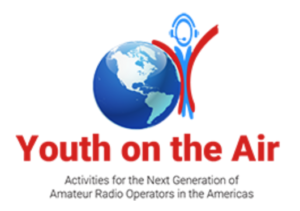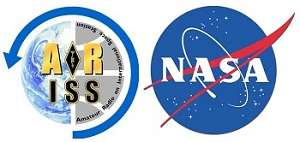Ed: This news was originally posted on the ARRL New England Division website. It is being offered here upon request.
ARISS News Release No. 23-47
Dave Jordan, AA4KN
ARISS PR
FOR IMMEDIATE RELEASE
Message to US Educators
Amateur Radio on the International Space Station Contact Opportunity
Call for Proposals
New Proposal Window: October 1 – November 10, 2023
September 25, 2023 — The Amateur Radio on the International Space Station (ARISS) Program is seeking formal and informal education institutions and organizations, individually or working together, to host an Amateur Radio contact with a crew member on board the ISS. ARISS anticipates that the contact would be held between July 1, 2024 and December 31, 2024. Crew scheduling and ISS orbits will determine the exact contact dates. To maximize these radio contact opportunities, ARISS is looking for organizations that will draw large numbers of participants and integrate the contact into a well-developed education plan.
The deadline to submit a proposal is November 10, 2023. Proposal information and more details such as expectations, proposal guidelines and the proposal form can be found at www.ariss.org. An ARISS Proposal Webinar session will be held October 5 2023 at 7 PM ET and the Eventbrite link to sign up is: https://ariss-proposal-webinar-fall-2023.eventbrite.com
The Opportunity:
Crew members aboard the International Space Station will participate in scheduled Amateur Radio contacts. These radio contacts are approximately 10 minutes in length and allow students to interact with the astronauts through a question-and-answer session.
An ARISS contact is a voice-only communication opportunity via Amateur Radio between astronauts and cosmonauts aboard the space station and classrooms and their communities. ARISS contacts afford education audiences the chance to learn firsthand from astronauts what it is like to live and work in space and to learn about space research conducted on the ISS. Students also have an opportunity to learn about satellite communication, wireless technology, and radio science. Because of the nature of human spaceflight and the complexity of scheduling activities aboard the ISS, organizations must demonstrate flexibility to accommodate changes in dates and times of the radio contact.
Please direct any questions to education@ariss-usa.org.
About ARISS:
Amateur Radio on the International Space Station (ARISS) is a cooperative venture of international amateur radio societies and the space agencies that support the International Space Station (ISS). In the United States, sponsors are the American Radio Relay League (ARRL), Amateur Radio Digital Communications (ARDC), Radio Amateur Satellite Corporation (AMSAT), NASA’s Space Communications and Navigation program (SCaN) and the ISS National Lab—Space Station Explorers. The primary goal of ARISS is to promote exploration of science, technology, engineering, the arts, and mathematics topics. ARISS does this by organizing scheduled contacts via amateur radio between crew members aboard the ISS and students. Before and during these radio contacts, students, educators, parents, and communities take part in hands-on learning activities tied to space, space technologies, and amateur radio. For more information, see http://www.ariss.org.
Find us on social media at:
X – Twitter: ARISS_Intl
Facebook: facebook.com/ARISSIntl
Instagram: ariss_intl
Mastodon: ariss_intl@mastodon.hams.social
Check out ARISS on Youtube.com.


 Editors note: Generally we do not repost news items off of the
Editors note: Generally we do not repost news items off of the